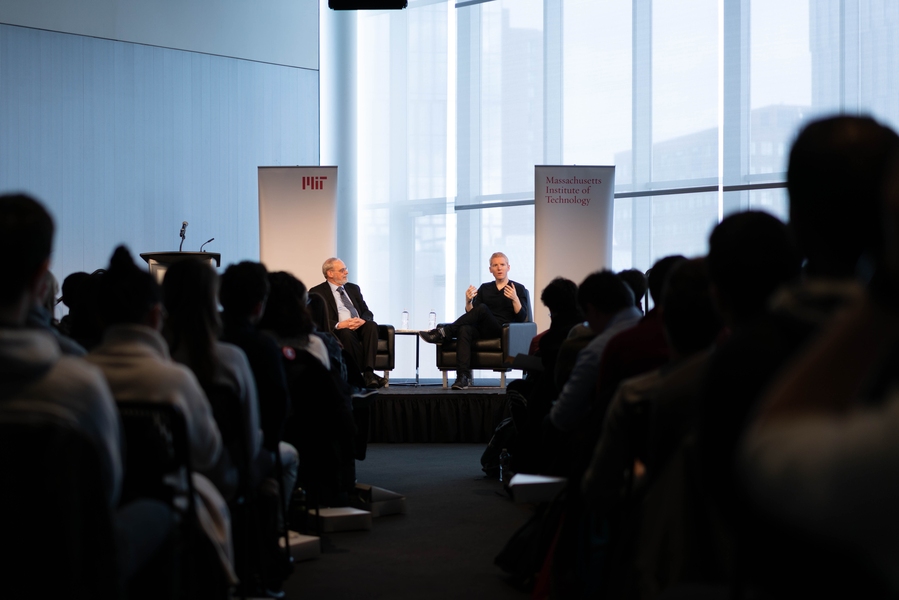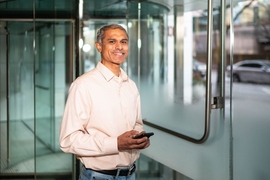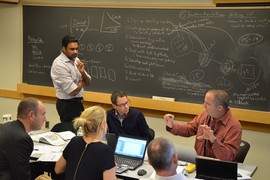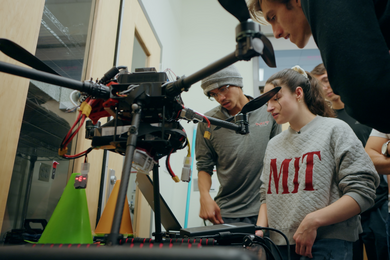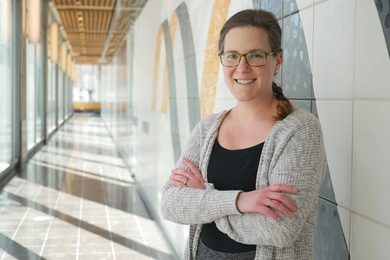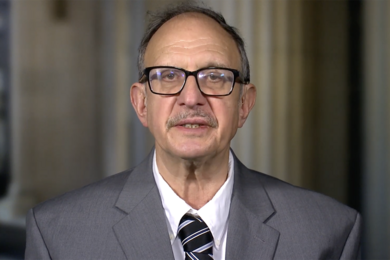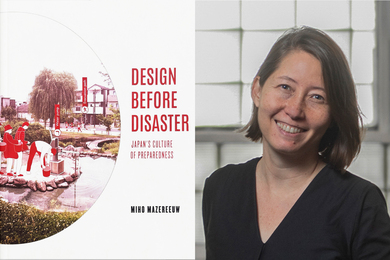With the Cambridge, Massachusetts, skyline visible behind him and before a room full of students, Patrick Collison asked for a show of hands. “Who’s here because you’re interested in starting a company at some point?” About half the room raised their hands. “And who’s interested in going and working at a technology company?” Some more hands went up. “And [those] just here for the free food?” The students laughed.
On Nov. 14, the School of Engineering and the Sloan School of Management co-organized an event for students with Patrick Collison, CEO of internet payment company Stripe. Anantha Chandrakasan, dean of the School of Engineering and the Vannevar Bush Professor of Electrical Engineering and Computer Science, opened the event, appropriately entitled “The Impatient Pursuit of Progress,” by first introducing Collison, followed by the discussion’s moderator, Eric Grimson, MIT Chancellor for Academic Advancement and Bernard M. Gordon Professor of Medical Engineering.
At the age of 16, Collison started at MIT to study math. Six months later, he left to start his first company, Auctomatic, with his brother John, who was attending Harvard University at that time. Auctomatic was acquired by LiveMedia in March 2008, after which Collison returned to MIT to pursue degrees in math and physics. After a year, he took a second leave of absence and co-founded Stripe with his brother John.
Today, organizations of all sizes, from startups to public companies like Salesforce and Amazon, use Stripe's software to accept online payments. More than 80 percent of people across the country made a purchase using Stripe in the past year. As of September, Stripe was valued at $35 billion. In 2016, Collison and his brother John became the world’s youngest self-made billionaires.
At the event, Collison spoke to many aspects of his journey, including the most important skills for students to develop, and the challenges of entrepreneurship.
When a first-year sought advice on exploring her interests with confidence, Collison acknowledged the uncertainty inherent in the endeavor, but said he believed that it was important to focus on one’s own interests, rather than “following train tracks laid by others.”
Throughout, Collison’s advice for students was marked by a combination of acuity and candor. One student asked Collison what he wished he’d done more of at MIT, and Collison said he would have liked to do more experimental work, expressing that it’s simpler to continue to study theory when you leave MIT, but more challenging and costly to experiment.
In sharing a characterization of Collison’s work ethic, Grimson concluded the event by noting, “That’s what MIT is about — challenge, question, don’t be afraid to take some risks, and look broadly at what you’re doing, because you never know where that big opportunity is going to be.”
Following the event, Chandrakasan expressed his enthusiasm in finding opportunities to share industry experience with students through events such as this, “We were thrilled to partner with MIT Sloan School of Management to jointly host this event, and to provide a forum for Patrick to share his experience with students who are interested in exploring the possibility of entrepreneurship.”
